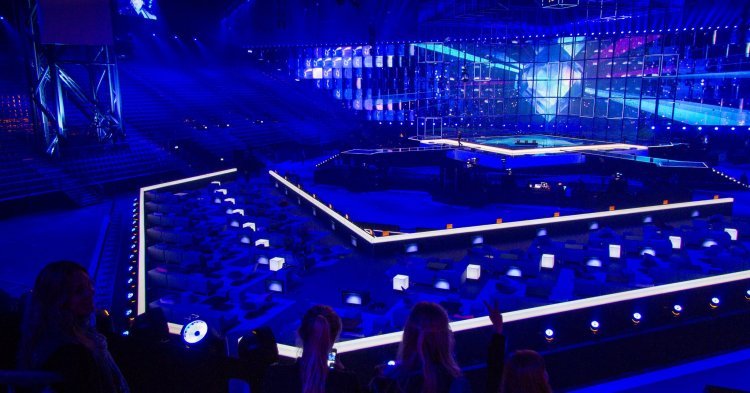The official replacement programme for Saturday carried the name “Europe Shine A Light”, hosted by the Netherlands which won the 2019 contest. Led by four hosts standing at an empty studio in the city of Hilversum, the broadcast featured short clips of each country’s entry, video greetings from artists, and performances by past winners such as Måns Zelmerlöw and Johnny Logan. As usual, the broadcast was aired on public TV channels across Europe from 9pm CEST.
Meanwhile, Germany organised its own Eurovision, with live performances and televoting. A week ago on 9 May, the country’s public TV channel ARD broadcast a semi-final unbeknown to the rest of Europe; ten entries made it to the final. Today, 16 May, the channel aired a “German ESC Final” from Hamburg starting from 8:15pm local time, featuring the ten finalists and highlights from past years’ Eurovision contests. The Icelandic, Danish and Lithuanian acts performed their songs live.
After jury votes and televoting, the Lithuanian group The Roop was announced as the winner with their song “On Fire”. Lithuania’s best-ever result in the official Eurovision Song Contest to date is from 2006, when the country placed sixth with LT United’s memorable “We Are The Winners”.
The same German channel then began playing the official “Europe Shine A Light” broadcast after the national version of Eurovision, one hour and fifteen minutes later than the rest of Europe. Like in previous years, Eurovision brought viewers together in front of their TV screens – even if Europe’s most populous country was slightly out of tune.
A handful of other countries had already organised similar alternative Eurovision contests earlier in the week. Iceland emerged as the winner in national contests held in Sweden and Australia, while Iceland itself selected Italy as its favourite act from this year.
The 2021 edition of Eurovision will be hosted in Rotterdam, Netherlands. Participating countries can re-send their 2020 artist to next year’s contest, but songs from this year cannot be recycled for Eurovision 2021.
17 May: This article has been updated with information about alternative Eurovision contests in other countries.


Follow the comments: |
|
